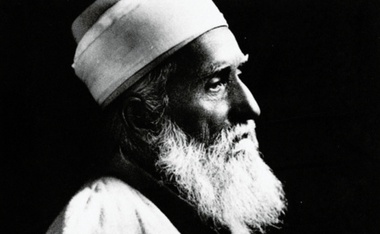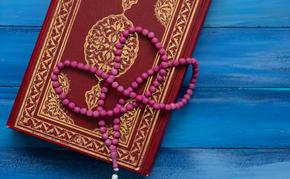The views expressed in our content reflect individual perspectives and do not represent the authoritative views of the Baha'i Faith.
Baha’is around the world will soon commemorate the one-hundred year anniversary of the passing of Abdu’l-Baha, son of the founder of the Baha’i Faith and the perfect exemplar of Baha’u’llah’s teachings.
His name at birth was Abbas Effendi, but he chose the name Abdu’l-Baha, which means “servant of the glory.” When he took his new name, he explained:
My name is Abdu’l-Baha. My qualification is Abdu’l-Baha. My reality is Abdu’l-Baha. My praise is Abdu’l-Baha. Thraldom to the Blessed Perfection [Baha’u’llah] is my glorious and refulgent diadem, and servitude to all the human race my perpetual religion … No name, no title, no mention, no commendation have I, nor will ever have, except Abdu’l-Baha. This is my longing. This is my greatest yearning. This is my eternal life. This is my everlasting glory.
Abdu’l-Baha understood service to humanity as the highest station of any human being. He taught:
Know that nothing will benefit thee in this life save supplication and invocation unto God, service in His vineyard, and, with a heart full of love, be in constant servitude unto Him.
Becoming a Baha’i means following Abdu’l-Baha’s example of selfless service to humanity, and I have tried, as every Baha’i does, to develop the inner spiritual qualities he so radiantly displayed.
RELATED: Seeing Race through Abdu’l-Baha’s Eyes
Even while Abdu’l-Baha was confined in prison, every Friday about a hundred of the poor and sick from many faiths gathered to await his charity. Abdu’l-Baha gave each person a coin, a kind word, and a gentle touch. He knew them all and asked about their families. He visited the sick in their homes. Since there was no hospital, he often nursed the sick and dying with his own hands. When he couldn’t, he paid a doctor to care for the very poor.
Abdu’l-Baha lived very simply. He wore inexpensive clothes, and if he received a gift of expensive clothing, he gave it away. This frustrated his family, but he only replied: “How could I be happy having two cloaks, knowing that there are those that have none?”
Abdu’l-Baha anticipated that the coming of the First World War would result in food shortages, and he encouraged farmers to grow extra grain on land he owned. Some of the harvest was hidden in ancient Roman storage pits so the Turkish army wouldn’t seize it. When naval blockades prevented food from reaching Haifa, he distributed the grain to everyone, regardless of religion or nationality, saving thousands who would have died from starvation.
When the war ended, the British quickly recognized Abdu’l-Baha’s accomplishments, and wanted to knight him as “Sir Abdu’l-Baha Abbas, Knight of the British Empire” at a ceremony held in Haifa especially for him. Although he was not impressed with worldly honor or ceremony, he consented to accept the knighthood, so that pilgrims from East and West would be able to come to the Holy Land with ease and safety and to enhance the recognition of the Baha’i Faith.
When he travelled to the West in 1912, he declined all donations, advising those who offered to distribute their funds among the poor. His American admirers had sent him thousands of dollars for a ticket on the Titanic and begged him to ride in the greatest of opulence, but he declined and gave the money to charity, making the voyage instead on a modest steamship.
The services he rendered were not only offered to the Baha’i community, but also to the inhabitants of Akka and Haifa in general.
At the age of 78, Abdu’l-Baha passed away at about 1:00 am on Monday November 28. (This year, Baha’is will commemorate the Ascension of Abdu’l-Baha in the early morning hours of November 27, because of variances in the conversion of the lunar date to the Baha’i calendar)
In the morning, when his passing had been announced, news quickly spread over the whole area, causing an unprecedented stir and tumult, and filling hearts with unutterable grief.
The funeral of Abdu’l-Baha unleashed a united expression of regret and respect, unlike anything which the Holy Land had ever witnessed. By seven o’clock on Tuesday morning, soldiers were lined up on both sides of the street. One Arab soldier standing guard, was seen leaning on his weapon with tears streaming down his face.
During his funeral procession, the long train of mourners, amid the sobs and moans of many a grief-stricken heart, wended its slow way up the slopes of Mt. Carmel to the Shrine of the Bab. The cortege was headed by an honor guard consisting of the City Constabulary Force, followed by the Boy Scouts of the Muslim and Christian communities holding aloft their banners, a company of Muslim choristers chanting their verses from the Qur’an, the chiefs of the Muslim community headed by the Mufti, a number of Latin, Greek and Anglican Christian priests, all preceding his sacred coffin, upraised on the shoulders of his loved ones. Immediately behind it came the members of his family, and next to them walked the British High Commissioner, the Governor of Jerusalem, and the Governor of Phoenicia.
In all, about ten thousand people participated, more than a quarter of the city’s population. The massive throng included the heads of various religious communities, the notables of Palestine, Jews, Christians, Moslems, Druses, Egyptians, Greeks, Turks, Kurds, and a host of Abdu’l-Baha’s American, European, and native friends, men, women and children, from every class and culture, all mourning their great loss –peoples of every religion and race and color united in heart through the lifelong humanitarian work of Abdu’l-Baha.
Nine speakers, representing the Muslim, the Jewish and Christian Faiths, and the Mufti of Haifa, raised their voices in eulogy and regret, paying their last homage of farewell to the one they respected and loved so much. So united were they in their praise of him, that there seemed to be nothing left for the Baha’is to say.
RELATED: Abdu’l-Baha’s Joyous Sense of Humor
On that day, Abdu’l-Baha was laid to rest in a vault under the northern room of the Shrine of the Bab. Shoghi Effendi, the Guardian of the Baha’i Faith, indicated that this would be a temporary arrangement, and that at the appropriate time a shrine would be erected in accordance of the wishes of Abdu’l-Baha, who had told an early believer that he wanted to be buried under the sands between Haifa and Akka, where the feet of the pilgrims to the Baha’i shrines would walk. A 2019 message from the Universal House of Justice, the democratically-elected global leadership body of the world’s Baha’is, galvanized the Baha’i world when it indicated that “that time has come” for the erection of Abdu’l-Baha’s shrine. Since then, Baha’is all over the world have joyfully contributed to a fund dedicated to building the shrine that, in the words of the architect, will be new and unique, and unlike any other building, will forever house Abdu’l-Baha’s physical resting place.
Abdu’l-Baha’s legacy of service and his perfect example of how to implement the Baha’i ideals of peace, love, and unity, have touched me deeply. I look forward to going on my Baha’i pilgrimage a year from now, to pray in this sacred spot, that my life may be more closely aligned with Baha’u’llah’s plan for the unfoldment of the Most Great Peace. It’s a wonderful year to be alive, and I am grateful!
















Comments
Sign in or create an account
Continue with Googleor